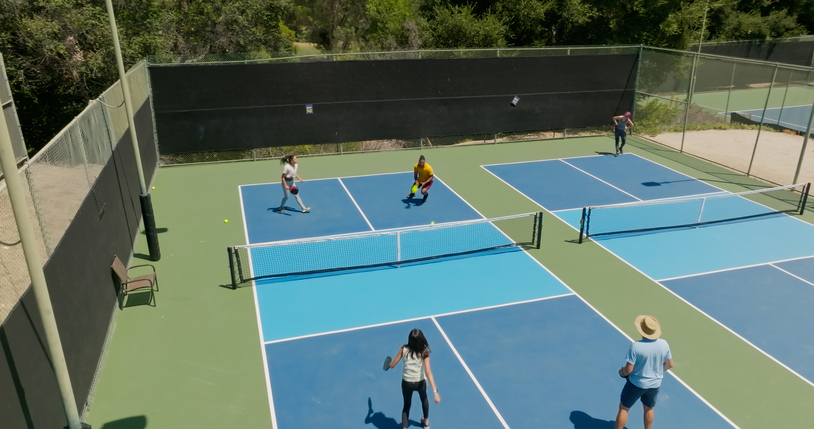
Pwock and Awe: Navigating the Pickleball Predicament in Community Spaces
The art of mediation often plays out in boardrooms and family disputes, but it’s also entering a new arena: the raucous “pwock” of Pickleball, America’s rapidly burgeoning sport. As communities grapple with the disruptive noise from their local courts, this collaborative tool offers a pathway to harmony.
The rise in Pickleball’s popularity has led to an increased number of courts springing up in neighborhoods across the country. With the sport’s proliferation, the noise issue has also expanded. The distinctive “pwock” sound made by the ball striking the paddle can be surprisingly loud, and when multiplied by the number of players and frequency of games, it becomes a significant nuisance for those living nearby.
Having worked in local government for many years, I am no stranger to the Pickleball Predicament that many communities face. It’s the classic “My quality of life is more important than your quality of life.” As a bureaucrat turned mediator, I was delighted to learn about an engineer taking innovative steps to tackle this issue. Bob Unetich, an engineer turned peacemaker in this conflict, embodies the mediator’s role. Through Pickleball Sound Mitigation LLC, he’s not merely dampening the sound but facilitating a dialogue between the sport’s enthusiasts and those who yearn for quieter days. Unetich’s methods mirror the mediator’s approach: assess the noise, advise on soundproofing solutions, and act to implement them.
This mediation dynamic is crucial in resolving the pickleball conundrum. It underscores the process’s universality, proving its worth beyond traditional disputes. Unetich’s venture into sound science education and his discussions with USA Pickleball to establish noise standards reflect the core of mediation—finding a balanced resolution that acknowledges the interests of all parties involved.
The pwock of Pickleball presents a unique case where the mediator’s tenet—to find common ground—is tested. Finding that sweet spot -the level of sound that appeases players and residents – is akin to reaching a fair settlement in a complex legal case. It’s about understanding, compromise, and achieving a sustainable peace that respects the sport’s spirit while preserving the tranquility of home life.
As Pickleball’s popularity surges, the collaborative and facilitative role of a trained third-party neutral grows ever more significant. Someone to foster a collective understanding. Involvement with community groups, homeowner associations, and sporting bodies reflects a mediator’s journey toward consensus.
Pickleball’s pwock and the quest to soften it exemplify how mediation principles apply in varied societal issues. It’s not limited to resolving disputes but is essential in crafting community-based solutions. Through mediation, even the most disruptive noises can be tuned into harmonious outcomes, proving that dialogue and cooperation can be as effective in sports courts as in courtrooms.
–Sarah
P.S. You should really Sign up for the mailing list.
